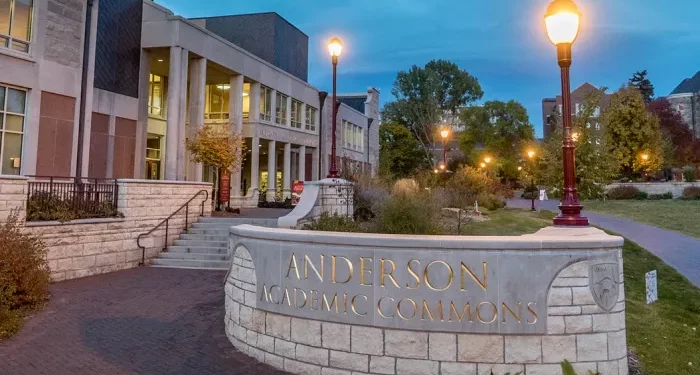In the 2024-2025 academic year, the University of Denver (DU) is sending 885 students abroad as part of its global education initiative. Of those students, 825 have already embarked on their international journeys this fall, marking a strong recovery for study abroad programs post-pandemic. Students from DU will study in 35 different countries, with Italy, Spain, the United Kingdom, and the Czech Republic among the most popular destinations.
DU’s Director of International Education, Emelee Volden, expressed excitement over the return to near-normal participation in some regions that had been slower to reopen after the COVID-19 pandemic. “We have students studying in nontraditional locations such as Georgia, Ghana, and Tanzania,” she said. “We’re also excited to have somewhat back-to-normal enrollment in Australia, New Zealand, China, and Taiwan. These were the slowest regions to open up again for study abroad after the pandemic.”
Expanding the Scope of Study Abroad Opportunities
While study abroad remains a highly attractive option for DU students, with seven out of 10 participating during their academic careers, questions remain about those who do not take advantage of the opportunity. This concern is central to the efforts of Kereine Ngoungui-Malemba, a graduate assistant in DU’s Office of International Education (OIE), who is on a mission to make studying abroad more accessible and inclusive.
Ngoungui-Malemba, originally from Gabon, is passionate about diversifying the study abroad experience and reaching out to students who are traditionally underrepresented in these programs. According to data from the Institute of International Education (IIE), about 69% of students studying abroad identify as white, highlighting a significant gap in participation among minority groups.
“I applied for this position mainly because I wanted to represent students of color who may not see themselves in study abroad,” Ngoungui-Malemba explained. During her time as a peer advisor in the OIE, she worked to identify and connect with groups less likely to study abroad, encouraging them to explore the more than 120 global education opportunities offered by DU.
Breaking Down Barriers to Study Abroad
DU’s Cherrington Global Scholars Initiative plays a crucial role in making international education accessible to a broad range of students by covering round-trip airfare and visa application fees. This financial support alleviates some of the barriers to studying abroad, making it significantly easier for DU students to participate compared to students at many other universities.
Despite the financial support, Ngoungui-Malemba’s focus is on addressing other hurdles, particularly for minority students. As a former study abroad participant herself, having studied in Seville, Spain, during her undergraduate years at DU’s Korbel School of International Studies, she brings first-hand experience and insights into the process.
Ngoungui-Malemba believes that many students of color may feel hesitant or disconnected from the idea of studying abroad, either because they don’t see others like themselves participating or because they aren’t aware of the options available beyond the typical Western European destinations.
She emphasized the importance of peer support in addressing these issues, particularly for students unsure about how to begin their study abroad journey. “I really love when students don’t know where they want to go,” she said. “It gives me an opportunity to guide them towards countries outside of the popular Western Europe region and to achieve that goal of diversifying study abroad.”
The Role of Peer Advisors in Supporting Students
Peer advisors like Ngoungui-Malemba are central to DU’s efforts to increase study abroad participation and make the process smoother for students. These student employees serve as guides and mentors, helping prospective participants navigate the complexities of the application process and making the idea of studying abroad seem less daunting.
“We draw it out for them—‘This is what you need to do’—and by the time they leave, they realize it’s not such a bad process,” Ngoungui-Malemba said, describing her work as a peer advisor. Weekly presentations by peer advisors cover everything from general program selection advice to navigating the OIE website, ensuring students have the tools they need to explore their options.
Volden echoed the importance of peer advisors in supporting students. “When a student really has no idea how to start, it’s very valuable for them to talk to a peer who’s gone through a similar process,” she explained. Having experienced the challenges and benefits of studying abroad themselves, peer advisors can offer practical advice and encouragement, helping students take the first step towards an international education.
Diversifying Destinations Beyond Western Europe
Ngoungui-Malemba’s passion for expanding study abroad opportunities goes beyond just increasing participation; she also wants to change where students go. With the majority of students selecting programs in Western Europe, she encourages them to consider other regions, particularly countries in Africa, Asia, and Eastern Europe.
“A lot of students might know where they want to go, or they might not know,” Ngoungui-Malemba said. “I really love when they don’t know, because that gets me a little bit of leeway to achieve that goal of mine—to diversify study abroad.”
DU has programs in less traditional study abroad destinations such as Ghana, Tanzania, and Georgia. Encouraging students to explore these options not only provides a unique educational experience but also helps diversify the perspectives of those studying abroad.
Aiming for Greater Inclusivity in Global Education
Ngoungui-Malemba’s work highlights a broader movement within the field of international education to make study abroad more inclusive. While financial barriers are often the first to be addressed, representation and access remain significant concerns. By reaching out to students from diverse backgrounds and encouraging them to consider international education, DU hopes to increase the overall participation rate and ensure that more students take advantage of the opportunity.
Her efforts, along with the support of the Cherrington Global Scholars Initiative and peer advising programs, demonstrate DU’s commitment to expanding the horizons of its students. These initiatives are especially important in a post-pandemic world, where international travel is gradually returning to normal and students are once again able to explore the world beyond their home campuses.
Looking ahead, DU aims to increase the number of students participating in study abroad programs, while also focusing on diversifying the destinations and student demographics involved. By providing financial support and personalized guidance, the university hopes to ensure that study abroad is an option for every student, regardless of background or financial situation.
Conclusion
The University of Denver is taking important steps to make study abroad more accessible and inclusive. With nearly 90% of its students participating in international education, the university has a strong foundation. However, the efforts of individuals like Kereine Ngoungui-Malemba show that there is still work to be done in reaching those who may feel left out of the traditional study abroad experience.
By addressing financial, logistical, and representational barriers, DU is ensuring that more students can explore global education opportunities. With the continued support of programs like the Cherrington Global Scholars Initiative and a dedicated team of peer advisors, the university is well-positioned to expand the horizons of its student body—one passport stamp at a time.
Related topics:



















